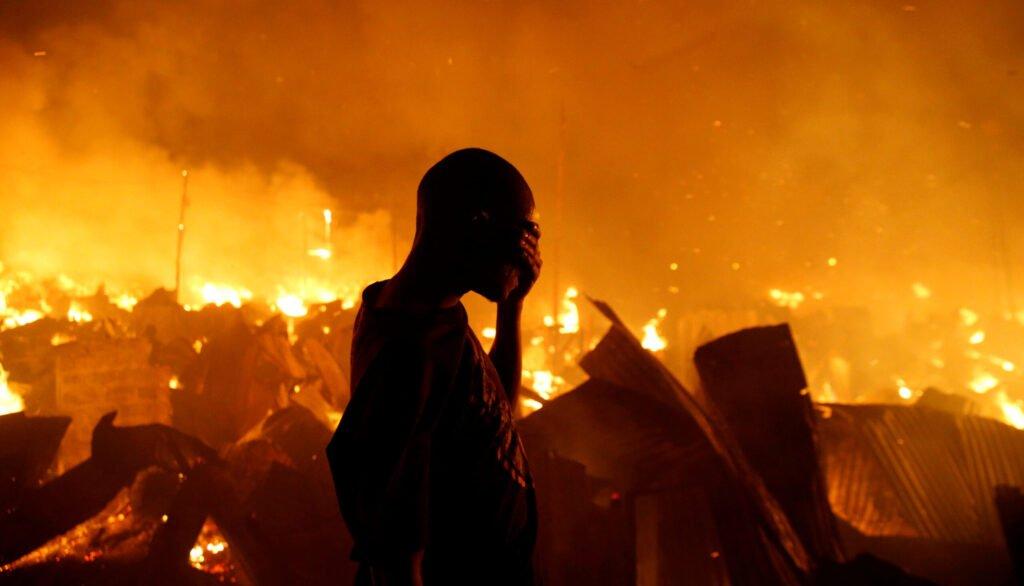Africa-Press – Sierra-Leone. As the world struggles to meet the climate crisis, voluntary carbon markets are starting to play a significant role in the effort to contain global greenhouse gas emissions.
Increasingly, global companies are incorporating carbon credits that reflect avoidance or removal of emissions into their efforts to reach net zero, while activity is accelerating to create a robust and credible market to generate and trade these credits.
All of this represents a transformational economic opportunity for Africa. A fully functioning global voluntary carbon market (VCM) could not only generate attractive returns on investment in African countries but also help them meet their own environmental challenges, from boosting renewable power to adopting cleaner cooking methods to reducing deforestation.
Unfortunately, that potential is far from being realised. The organisations we represent — focused on speeding the energy transition, ending energy poverty and addressing climate change— have launched an initiative to foster integrity (high-quality carbon credit generation and exchange) in the voluntary carbon market by establishing a concrete action plan to stimulate the production of quality carbon credits across the continent at scale. We believe that missing out on this opportunity would be a tragic error for Africa and a setback for the global effort to curb climate change.
Globally, VCMs have grown strongly in the last five years. Last year saw a greater than 50 per cent increase in real demand (as measured by the retirement of existing carbon credits), and the value of carbon credit transactions exceeded $1bn for the first time. But of the total credits issued between 2015 and 2021, only about 11 per cent stem from African countries, and the bulk of these come from a few large projects.
This is just scratching the surface. We estimate Africa could generate over 2Gt of CO2 (based on existing methodologies) – and at $20/tonne CO2, this could be worth over $45bn.
Consider, for example, the opportunity to generate credits through investment in energy transition, such as by replacing diesel generators with distributed renewable energy or switching from wood fires to clean cookstoves. As projects like these scale, revenues earned can go towards additional development priorities such as expanding access to clean and affordable energy, supporting the protection of water catchment areas thus building resilience in hydropower projects and creating jobs through economic development.
Some innovative projects already underway demonstrate what success could look like.
Creating victory
SunCulture is a climate-tech platform for rural emerging markets that has raised $40m to provide smallholder farmers with reliable access to water, irrigation, lighting and mobile charging through off-grid solar technology. Their solar irrigation systems allow farmers in Kenya and other sub-Saharan African markets to switch from CO2-emitting petroleum and diesel pumps to solar pumps for irrigation and create sustainable jobs in agriculture less dependent on rainfall.
SunCulture is working on developing its carbon credit business to reduce end-user prices and increase accessibility to the systems – SunCulture has received validation under Verra standards and the project is estimated to generate a total of over 2 Mt of CO2 emissions reduction over the period 2020-2027. SunCulture has the ambition to scale across several other sub-Saharan African countries in the next years, reaching hundreds of thousands of solar pumps sold by 2025.
KOKO Networks is “the technology platform protecting African forests”. KOKO is driving an energy transition across Kenya, replacing deforestation-charcoal with sustainable bioethanol delivered via a unique utility platform that resembles a mobile telco in scale and sophistication. Over 600,000 households now cook with KOKO Fuel, with carbon revenues solving the affordability gap instead of government subsidies.
In addition to energy projects, Africa, with its vast forests, has a significant share of the global nature-based solution potential. Estimates suggest that just 11 African countries could provide 15 per cent of global NCS by 2030, with the Democratic Republic of the Congo alone potentially contributing 5 per cent. One of the largest REDD+ projects in Africa and the first to issue third-party-verified REDD+ credits is the Kasigau Corridor, which seeks to protect endangered species, prevent forest degradation and drive direct climate finance to local communities for self-determined, transformative economic development in a fragile region of Kenya.
In partnership with local communities, Wildlife Works has co-created new economic opportunities, increased food and water security, and improved access to healthcare and education to relieve deforestation pressure on the project area. The Kasigau Corridor covers over 500,000 acres of dryland forest and generates carbon credits to offset 1m tonnes of CO2 emissions annually for the next 30 years.
The Acorn agroforestry platform established by a Dutch financial institution encourages small farmers in a number of African countries to plant trees on their land, to improve soil quality and extract CO2 from the atmosphere. It uses satellite data to measure biomass on participating farms and rewards increases by issuing certified Carbon Removal Units (CRUs) that can be bought by companies, like Microsoft, seeking to offset their emissions.
A number of factors are holding back the wider adoption of carbon credit projects across the continent. First, the ecosystem of project developers is very limited in scale and scope: 65+ per cent of project developers in Africa operate only one project and 80 per cent operate in only one country. Second, navigating land rights for NCS projects can be challenging. Third, and partly as a result, it can be expensive to validate and verify individual projects. And fourth, market mechanisms to de-risk investment in supply have not been developed.
Our joint initiative aims to develop a structured approach to address each of these issues. As neutral players in this space, we aim to define a roadmap for voluntary carbon markets in Africa — as an accelerant, not a competitor, to existing work.
By the time of the COP27 climate summit in Sharm El Sheikh, Egypt this November, we hope to have achieved agreement on the overall ambition for VCMs in Africa, partnered with African governments and developed a concrete roadmap, including a set of lighthouse projects, for the years ahead.
The potential of these efforts to strengthen African economies and advance the global fight against climate change, while driving important development priorities such as energy access and energy transition, should not be underestimated. If successful, they will radically reduce the time it takes to generate credits, increase the underlying quality of African carbon credits while enabling them to command a premium price, and significantly increase the volume of credits. The time to act is now.
For More News And Analysis About Sierra-Leone Follow Africa-Press






